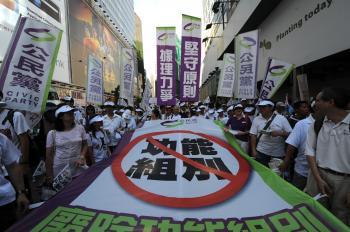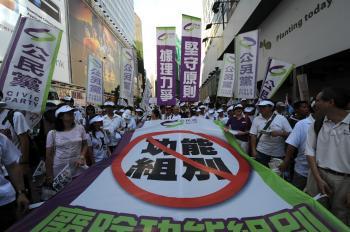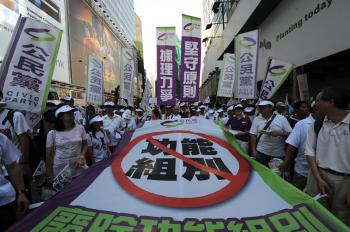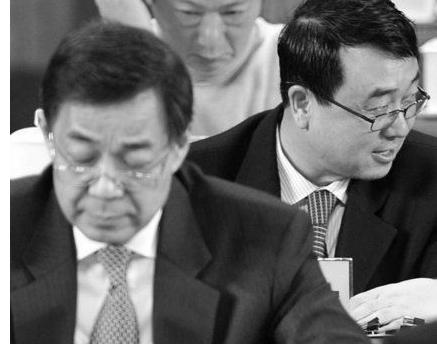Hong Kong’s Legislative Council recently passed an electoral reform that promises to fundamentally change Hong Kong’s relations to Beijing and the possibilities for Hong Kong’s self-government. The reform broke a deadlock dating back to 1997, as part of Hong Kong’s democratic alliance agreed for the first time to compromise with Beijing.
Hong Kong Chief Executive Donald Tsang declared himself satisfied with the June 25 agreement.
“Not only did political reform set sail, Hong Kong’s whole economy and society have set sail,” he said. “Hong Kong will be different from now on.”
Chief Secretary for Administration Henry Tang called it a “huge victory” for Hong Kong.
The Hong Kong public, however, did not consider it a huge victory. The “revised package” for electoral reform passed by Legco is commonly referred to as the “rotten package.”
The reform was only passed because members of the Democratic Party voted with legislators loyal to the Hong Kong executive. Founding member of the Hong Kong Democratic Party Andrew Cheng has withdrawn from the party over the role it played in bringing about the reform, and the Democratic Party is facing criticism on all sides from its former allies in the pan-democratic movement.
Compromise
Since the handover of Hong Kong by the United Kingdom in 1997, Hong Kong has been a Special Administrative Region (SAR) of the People’s Republic of China. According to Hong Kong’s Basic Law, the fundamental principles of Hong Kong’s political system are that the people of Hong Kong govern Hong Kong and the policy of “one country, two systems.”
Beijing has interpreted these principles to mean that, with the exceptions of foreign affairs and military affairs only, the Hong Kong people have the authority to make decisions on all issues—within the limits of political institutions that, while allowing for freedom of speech and assembly and an independent judiciary, restrict the ability of the people of Hong Kong to choose who governs them.
The “one country, two systems” policy was proposed because of the Hong Kong people’s widespread disbelief in and dislike for the Chinese communist regime. “One country” is the unchangeable political premise, while “two systems” is the political arrangement aimed at alleviating the Hong Kong people’s opposition to the regime.
The groundwork for the June 25 vote was laid by a compromise negotiated between the Democratic Party and the People’s Republic of China’s Liaison Office (the equivalent of an embassy). The Democratic Party agreed to an increase in the number of functional constituencies—legislative seats representing professions or special interests in Hong Kong—in return for these new seats being elected by all the voters of Hong Kong (members for functional constituencies are otherwise elected by their own group).
The compromise appeared to expand universal suffrage in Hong Kong. Democratic critics have pointed out, however, that the nominations for these new seats are made by a closed and undemocratic process controlled by the Hong Kong chief executive.
Democratic critics have also pointed out that the reform accepts the legitimacy of functional constituencies, something that had been anathema to the democratic movement in Hong Kong. The pan-democratic alliance’s consistent strategy since 1997 had been to call for an end to the functional constituencies.
There is, though, a more significant consequence of this reform. It marks a transition from the principle of the Hong Kong people governing Hong Kong to that of Beijing governing Hong Kong.






